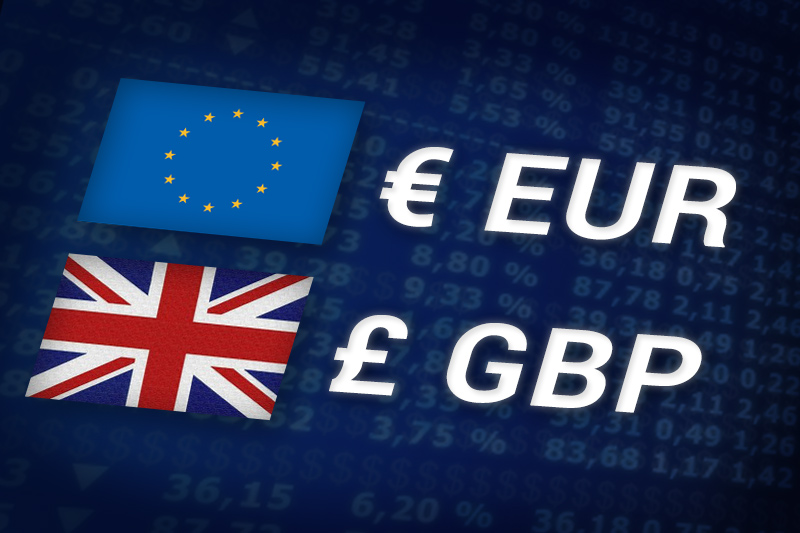Investing.com - The euro dipped against the broadly stronger pound on Tuesday, as concerns over Portugal’s escalated borrowing costs overshadowed hopes that Greece can reach a debt swap deal with its creditors by the end of the week.
EUR/GBP pulled back from 0.8385, the session high, to hit 0.8360 during European morning trade, dipping 0.06%.
The pair was likely to find support at 0.8309, the low of January 25 and resistance at 0.8405, Monday’s high.
The euro was hit by concerns over Portugal’s debt load, as the yield on the country’s 10-year government bonds rose above 17% earlier, amid renewed fears the country may need a second international bailout.
Market sentiment had been boosted earlier after Greek Prime Minister Lucas Papademos said negotiators had made "significant progress" in talks aimed at reaching a restructuring deal on government debt and aimed to have a definitive agreement by the end of this week.
The pound was almost unchanged after official data showed that lending in the U.K. remained subdued in December, rising by GBP0.4 billion, below expectations for GBP1.2 billion increase.
A separate report showed that consumer confidence in the U.K. rose to its highest level in seven months in January.
The Gfk consumer confidence index rose 4 points from December to minus 29, the strongest reading since June, while consumers’ outlook for their personal finances and the economy also improved.
Elsewhere, the pound was higher against the U.S. dollar, with GBP/USD adding 0.46% to hit a two-month high at 1.5782.
Also Tuesday, official data showed that the number of unemployed people in Germany fell more-than-expected in January, while the country’s jobless rate dropped to a record low, easing concerns over the economic outlook for the region’s biggest economy.
EUR/GBP pulled back from 0.8385, the session high, to hit 0.8360 during European morning trade, dipping 0.06%.
The pair was likely to find support at 0.8309, the low of January 25 and resistance at 0.8405, Monday’s high.
The euro was hit by concerns over Portugal’s debt load, as the yield on the country’s 10-year government bonds rose above 17% earlier, amid renewed fears the country may need a second international bailout.
Market sentiment had been boosted earlier after Greek Prime Minister Lucas Papademos said negotiators had made "significant progress" in talks aimed at reaching a restructuring deal on government debt and aimed to have a definitive agreement by the end of this week.
The pound was almost unchanged after official data showed that lending in the U.K. remained subdued in December, rising by GBP0.4 billion, below expectations for GBP1.2 billion increase.
A separate report showed that consumer confidence in the U.K. rose to its highest level in seven months in January.
The Gfk consumer confidence index rose 4 points from December to minus 29, the strongest reading since June, while consumers’ outlook for their personal finances and the economy also improved.
Elsewhere, the pound was higher against the U.S. dollar, with GBP/USD adding 0.46% to hit a two-month high at 1.5782.
Also Tuesday, official data showed that the number of unemployed people in Germany fell more-than-expected in January, while the country’s jobless rate dropped to a record low, easing concerns over the economic outlook for the region’s biggest economy.
